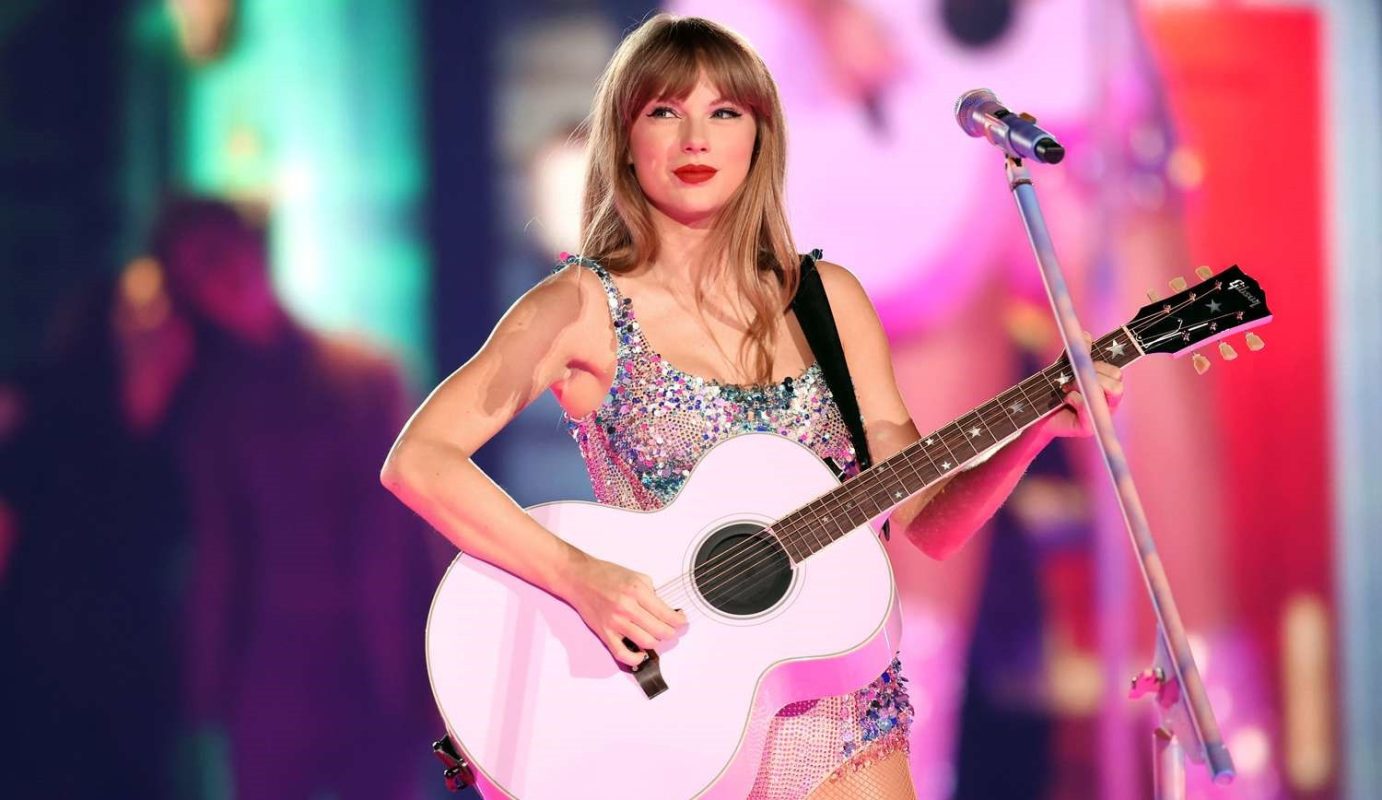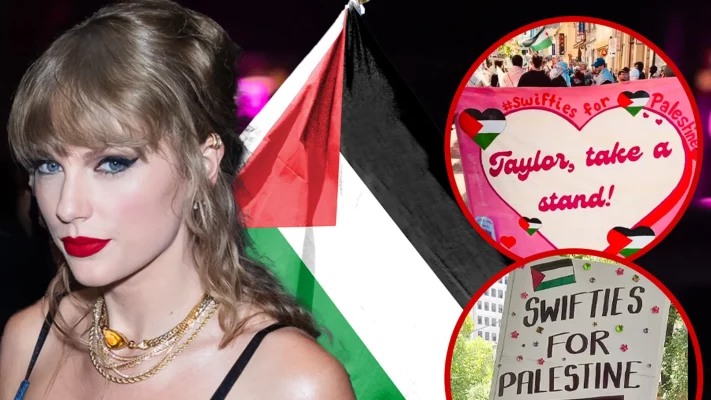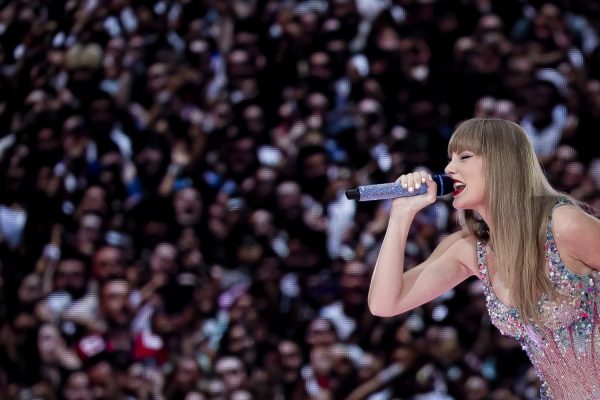none
Taylor Swift and the Swifties: Ethical Dilemmas in Celebrity Activism On Palestine
In recent years, Taylor Swift has undeniably solidified her status as a musical powerhouse, amassing impressive album sales, accolades, and a dedicated fan base known as Swifties. Yet, amidst her rise to fame, Swift and her fan community find themselves embroiled in a complex ethical debate regarding her stance—or lack thereof—on pressing global issues.
For many Swifties, Taylor Swift represents more than just a musician; she embodies a symbol of vulnerability and empowerment through her confessional songwriting style. Fans like Naveen Shariff from Karachi have grown up with Swift’s music, finding solace and understanding in her lyrics that navigate themes of love, loss, and personal growth. However, as the world grapples with humanitarian crises, particularly Israel’s military operations in Gaza and the West Bank, Swift’s silence has sparked controversy within her fan base.
Rabiya Raza, another dedicated Swiftie, expresses disappointment over Swift’s apparent reluctance to speak out against what many perceive as Israel’s human rights violations. Despite having close ties to individuals of Palestinian descent, such as her friend Gigi Hadid, and amidst vocal support from some of her tour staff, Swift has chosen to remain publicly neutral on the issue, prompting hashtags like #SwiftiesForPalestine to trend in protest.
The dilemma deepens as Swifties like Rabiya wrestle with the moral implications of continuing to support an artist whose political silence clashes with their own values. Rabiya admits to reducing her consumption of Swift’s music, reflecting a broader sentiment among fans who see ethical consumption as a form of activism in itself.
This ethical quandary is not unique to Taylor Swift but underscores a broader trend in celebrity culture where fans increasingly expect public figures to align with their values on social and political issues. As Francesca Albanese, a UN expert, highlights Israel’s actions as potentially violating genocide conventions, the pressure on celebrities to use their platforms for advocacy intensifies.
Yet, navigating this terrain is fraught with complexities. Taylor Swift’s legal battles over her music rights, notably with Scooter Braun, have shaped her public image as a fierce defender of her artistic integrity. Her journey from pop sensation to outspoken artist in control of her narrative resonates deeply with fans, complicating their reactions to her silence on geopolitical matters.
In a landscape where every social media post and public statement can shape public opinion, the stakes are high for celebrities like Swift. While some argue that artists have a moral duty to speak out against injustice, others contend that expecting celebrities to be moral arbiters oversimplifies the challenges they face in balancing personal beliefs with professional obligations.
As the debate rages on, Swifties remain divided. While some continue to support Taylor Swift wholeheartedly, others grapple with the cognitive dissonance of admiring an artist who chooses to remain apolitical in times of global crisis. The tension between fandom loyalty and ethical responsibility underscores the complexities of navigating celebrity worship in an increasingly politicized world.
In conclusion, Taylor Swift’s influence extends beyond the realm of music, transcending into ethical dilemmas that resonate deeply with her fan base. Whether she chooses to address these concerns or not, the discourse surrounding Swift and her Swifties reflects broader societal expectations of celebrity accountability in a world fraught with moral ambiguity.

Stay connected with Growkoc for more updates. Share your favorite memories and moments in the comments below!



